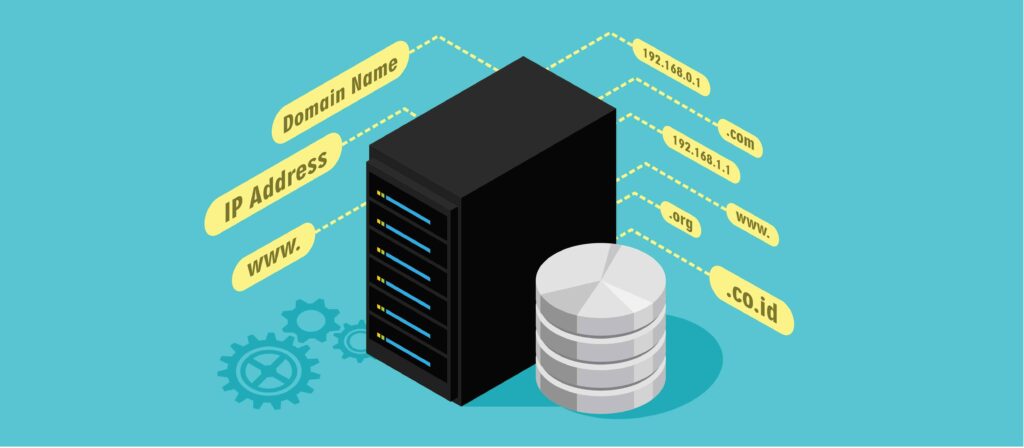
Introduction to DNS Filtering
DNS filtering, an essential component of modern cybersecurity frameworks, leverages the Domain Name System to enhance internet safety. The Domain Name System, commonly known as DNS, serves as the backbone of internet operations. It translates user-friendly domain names, such as www.example.com, into IP addresses, enabling browsers to navigate and access websites efficiently.
However, the integral role DNS plays also makes it a prime target for malicious activities. Here enters the concept of DNS filtering. DNS filtering works by actively monitoring and controlling DNS requests. It scrutinizes these requests against a pre-defined set of rules and policies, allowing safe traffic through while blocking or redirecting potentially harmful ones. Essentially, if a domain is known for distributing malware or hosting phishing schemes, DNS filtering will prevent access by intercepting the DNS request.
To understand its significance, consider DNS filtering as a security checkpoint on a virtual highway. It ensures only verified and trusted vehicles—representing safe domains—can pass, directing suspicious or unauthorized vehicles elsewhere, often to a warning page that alerts users about the potential risk.
Beyond merely blocking access to dangerous sites, DNS filtering also plays a pivotal role in maintaining organizational and personal online safety. Businesses utilize DNS filtering to safeguard their networks, preventing employee access to non-secure sites that could jeopardize sensitive data. At home, DNS filtering serves parents looking to restrict children’s access to inappropriate content, fostering a safer browsing experience.
In a world increasingly reliant on digital transactions and virtual interactions, the importance of DNS filtering cannot be overstated. By effectively mitigating risks associated with compromised and malicious websites, DNS filtering contributes significantly to a secure and safe internet infrastructure.
How DNS Filtering Works
DNS filtering is a pivotal technology designed to enhance online security by managing and controlling access to websites based on domain names. Essentially, DNS (Domain Name System) filtering functions by intercepting DNS queries and examining them against predetermined criteria or an extensive database of known malicious domains. This systematic process begins when a user initiates a request to access a particular website by typing its URL or clicking a link. The DNS query is generated to resolve the human-readable domain name into an IP address, directing the user to the intended website.
Upon interception, the DNS filtering mechanism scrutinizes the query against a list of criteria or a database. If the domain name in question is flagged as malicious or suspicious based on its presence in the database, the DNS filter will block access to the site, thereby protecting the user from potential threats such as malware, phishing attacks, and various other forms of cybercrime. Conversely, if the domain is deemed safe, the query is permitted to proceed, and the user is directed to the requested website.
There are different types of DNS filtering, each functioning at various levels of the network ecosystem. Local DNS filtering is implemented on individual devices, providing a straightforward method to control access per user level. Network-level DNS filtering, on the other hand, operates within the local network infrastructure, allowing institutions—such as schools or businesses—to enforce network-wide security policies. Finally, recursive DNS filtering encompasses a broader scope, where DNS filtering takes place at the recursive DNS server level, offering protection to users regardless of their location as long as they utilize the recursive server for DNS resolution.
By incorporating DNS filtering at multiple levels, organizations and individuals can create robust layers of defense against an array of cyber threats. This multi-tiered approach ensures that whether on a personal device, across a shared network, or through a recursive DNS service provider, users can navigate the internet with increased security and reduced exposure to harmful content.
Key Benefits of DNS Filtering
DNS filtering offers a myriad of advantages, making it an indispensable tool for modern cybersecurity and network management. One of the primary benefits is enhanced network security. By blocking access to known malicious sites, DNS filtering acts as a crucial first line of defense against cyber threats. This preventive measure is particularly effective in thwarting phishing and malware attacks, protecting sensitive data and preserving the integrity of business operations.
Another significant advantage is improved productivity. By filtering out distracting or non-work-related websites, employees can maintain focus on their tasks, enhancing overall efficiency. This productivity boost is supported by statistics, such as a report from Gartner, which indicates a 20% increase in employee productivity when non-essential sites are restricted.
DNS filtering also contributes to bandwidth savings. By reducing access to high-bandwidth sites that are not work-related, organizations can ensure that their network resources are utilized optimally. This is particularly beneficial for businesses with remote teams or those relying heavily on cloud-based applications, as bandwidth can be a limiting factor in such scenarios.
Additionally, DNS filtering is instrumental in the prevention of phishing and malware attacks. Statistics from the Verizon Data Breach Investigations Report reveal that approximately 22% of data breaches in 2020 involved phishing. By preventing access to these malicious sites, DNS filtering significantly reduces the risk of falling victim to such threats.
These advantages collectively underscore the critical role of DNS filtering in safeguarding both individual users and corporate networks. The tangible outcomes, from increased security and productivity to optimized bandwidth usage, highlight its importance in contemporary cybersecurity strategies.
DNS Filtering in Cybersecurity
DNS filtering represents a cornerstone in the domain of modern cybersecurity. As a pivotal component of a multi-layered security approach, DNS filtering serves as an essential safeguard against the myriad of threats that plague the digital landscape. Integrating seamlessly with other security technologies such as firewalls, intrusion detection systems, and antivirus software, DNS filtering enhances the robustness of the overall cybersecurity framework.
The role of DNS filtering in early threat detection is particularly noteworthy. By evaluating DNS requests against a list of known malicious domains, DNS filtering can effectively intercept potential threats before they reach the network. This proactive measure is critical, considering the rapid evolution of sophisticated cyber threats. Filtering out harmful websites and domains not only reduces the risk of malware infections but also minimizes the exposure to phishing attacks and command-and-control communications used by many forms of malicious software.
Moreover, DNS filtering works synergistically with existing security measures, providing an additional layer of defense. While firewalls and intrusion detection systems focus on evaluating and responding to existing traffic, DNS filtering can curtail threats at their source by blocking access to harmful domains. This form of early intervention is a key tactic in reducing the network’s vulnerability to emerging threats.
Antivirus software, although effective in identifying and neutralizing known malware samples, sometimes lacks the capability to deal with zero-day threats—previously unknown vulnerabilities that are particularly dangerous. Here, DNS filtering plays a crucial role. By preemptively blocking access to suspicious websites, it significantly reduces the chances of encountering zero-day vulnerabilities. Consequently, the synergy between antivirus solutions and DNS filtering fortifies the defenses, making it difficult for cyber adversaries to successfully launch attacks.
Overall, DNS filtering is indispensable in modern cybersecurity strategies. Its ability to integrate with core security measures, detect threats early, and mitigate sophisticated attacks places it as a critical component in safeguarding digital environments. As cyber threats continue to evolve, the importance of DNS filtering will only become more pronounced, ensuring comprehensive protection against an ever-expanding array of dangers.
NextGen IT Solutions for DNS Filtering
The evolution of DNS filtering has seen a remarkable transformation primarily led by NextGen IT companies. These modern solutions aim to enhance the robustness of network security measures through tools and systems that incorporate sophisticated algorithms, AI integration, and scalable cloud-based infrastructures. With cyber threats becoming increasingly complex, the necessity for cutting-edge DNS filtering methods has never been more pronounced.
One of the fundamental advancements in DNS filtering comes from the use of sophisticated algorithms. These algorithms analyze vast amounts of data to detect patterns indicative of potential threats. Compared to traditional methods, which often relied on manual updates and reactive strategies, NextGen solutions proactively identify suspicious activities at the DNS level, significantly reducing the time window for possible exploits.
Artificial intelligence (AI) has further propelled DNS filtering capabilities. AI-driven solutions can automatically adapt to new types of threats by learning from each interaction, thereby continuously improving their efficacy. This dynamic adaptability is crucial in an ever-evolving threat landscape. For instance, AI-integrated DNS filtering systems can recognize and mitigate zero-day threats much faster than manual methods, providing a compelling case for enterprises to adopt these innovations.
The flexibility and scalability of cloud-based DNS filtering solutions add another layer of effectiveness. By leveraging the cloud, these solutions ensure that threat intelligence is updated in real-time and distributed globally. This means organizations can benefit from a collective defense mechanism, where insights gleaned from one attack can help prevent similar attacks elsewhere. Cloud-based solutions also offer the advantage of ease of deployment and management, allowing for seamless integration with existing IT infrastructures.
Case studies exemplify the impact of NextGen DNS filtering solutions. For example, Company X implemented an AI-driven DNS filtering solution that reduced malware infiltration incidents by 60% within the first six months. Similarly, Organization Y adopted a cloud-based DNS filtering system, which resulted in a 50% reduction in phishing attacks and improved overall network performance.
Ultimately, these advanced solutions developed by NextGen IT companies represent a transformational shift in how organizations protect their networks. Utilizing sophisticated algorithms, AI integration, and cloud capabilities, these methods stand at the forefront of network security, enabling a dynamic and adaptive defense against emergent cyber threats.
Implementing DNS Filtering in Your Organization
Implementing DNS filtering within your organization’s infrastructure can significantly enhance security by blocking access to malicious websites and preventing data breaches. The first step in this process is choosing the right DNS filtering solution. Evaluate various DNS filtering providers by considering factors such as ease of use, cost, customization options, and the ability to integrate with your existing IT infrastructure.
Once you select a suitable DNS filtering solution, the next step is setting up and configuring the DNS filters. This typically involves updating the DNS settings on your network devices to point to the filtering service’s DNS servers. Proper configuration is crucial, as it defines which types of content should be blocked and establishes the policies that will govern the filtering. Make sure to involve key stakeholders to align the DNS filtering policies with your organization’s security requirements and acceptable use policies.
Ongoing management and monitoring are essential to ensure the DNS filtering system remains effective. Assign roles and responsibilities for updating the filtering policies, addressing user access requests, and reviewing logs to identify and respond to potential threats in real-time. Implementing regular reviews and audits can help in keeping the DNS filtering settings current and effective against new and evolving cyber threats.
Scalability is another vital consideration when implementing DNS filtering. As your organization grows, your DNS filtering solution should be able to adapt to increased traffic and accommodate additional users without compromising performance. Evaluate the scalability features of your chosen solution to avoid disruptions in your network’s functionality.
Moreover, compliance with data protection laws, such as GDPR or CCPA, should be a priority during the implementation process. Ensure that your DNS filtering practices align with these regulations by consulting legal experts and keeping abreast of any changes in the legislative landscape.
Finally, seamless integration with your existing IT infrastructure will enhance the efficacy of DNS filtering. Collaboration between your IT and security teams is vital to ensure compatibility and avoid potential conflicts with other security measures and IT processes.
Challenges and Limitations of DNS Filtering
Despite the significant benefits of DNS filtering, it comes with its own set of challenges and limitations that require careful consideration. One of the primary issues is the potential for overblocking, wherein legitimate and acceptable content is inadvertently restricted. This can be particularly problematic for organizations and individuals who rely on a wide range of online resources. Misclassifications and overly stringent filtering criteria can hinder access to valuable information, creating a friction-filled online experience.
In addition, DNS filtering can introduce latency, especially if the filtering solution is not optimally configured. The extra steps involved in querying and analyzing DNS requests can slow down the browsing experience, which is particularly noticeable in real-time applications such as video conferencing and online gaming. To minimize latency, it is crucial to employ efficient DNS filtering solutions that are designed to process requests quickly and accurately.
Another significant challenge lies in the necessity of maintaining an updated and comprehensive threat database. Cyber threats evolve rapidly, and outdated threat information can render DNS filtering less effective. Regular updates and proactive threat intelligence are essential to ensure that DNS filtering can adapt to new and emerging risks. Organizations need to invest in reliable threat feeds and robust update mechanisms to keep their filtering systems relevant.
Privacy concerns are also a noteworthy limitation. DNS filtering inherently involves the monitoring and inspection of DNS queries, which can be perceived as intrusive by users. The act of logging queries and analyzing data can potentially expose sensitive information if not handled with stringent privacy safeguards. It is imperative for organizations to implement transparent privacy policies and utilize encryption techniques to protect user data.
To overcome these limitations, best practices such as implementing adaptive filtering policies, regularly updating threat databases, optimizing system configurations, and ensuring data privacy can greatly enhance the performance of DNS filtering solutions. By addressing these challenges directly, users can reap the protective benefits of DNS filtering while mitigating its drawbacks.
Future Trends in DNS Filtering
As cyber threats continue to evolve, DNS filtering technology must advance to effectively counteract these emerging risks. One of the promising future trends in DNS filtering is the integration of Artificial Intelligence (AI) and machine learning algorithms. These advanced technologies are designed to analyze vast volumes of DNS query data more efficiently and accurately. By learning from patterns and anomalies in DNS traffic, AI-driven DNS filtering systems can proactively detect and block malicious domains, providing a robust defensive measure against cyber threats.
Another significant development on the horizon is the implementation of DNS over HTTPS (DoH). This protocol enhances privacy by encrypting DNS queries, making it harder for attackers to intercept and manipulate DNS requests. As more organizations and internet service providers adopt DoH, DNS filtering will become more resilient against eavesdropping and man-in-the-middle attacks. Despite some challenges in implementation, the widespread adoption of DoH is expected to strengthen the privacy and security framework of DNS filtering.
Advancements in real-time threat detection and response are also set to revolutionize DNS filtering. With the aid of continuous monitoring and rapid data analysis, next-generation DNS filtering solutions can identify and mitigate threats almost instantaneously. This real-time capability is crucial in the modern cybersecurity landscape, where new threats can emerge and proliferate at unprecedented speeds. Enhanced real-time threat detection ensures that potential threats are neutralized before they can cause significant damage.
As cyber threats become more sophisticated, DNS filtering technology will need to keep pace with increasing cybersecurity demands. The future of DNS filtering looks promising, with AI and machine learning, DNS over HTTPS, and real-time threat detection playing pivotal roles in its evolution. These advancements are expected to transform DNS filtering into a more dynamic and effective tool, helping organizations navigate the complex and ever-changing terrain of cybersecurity.



